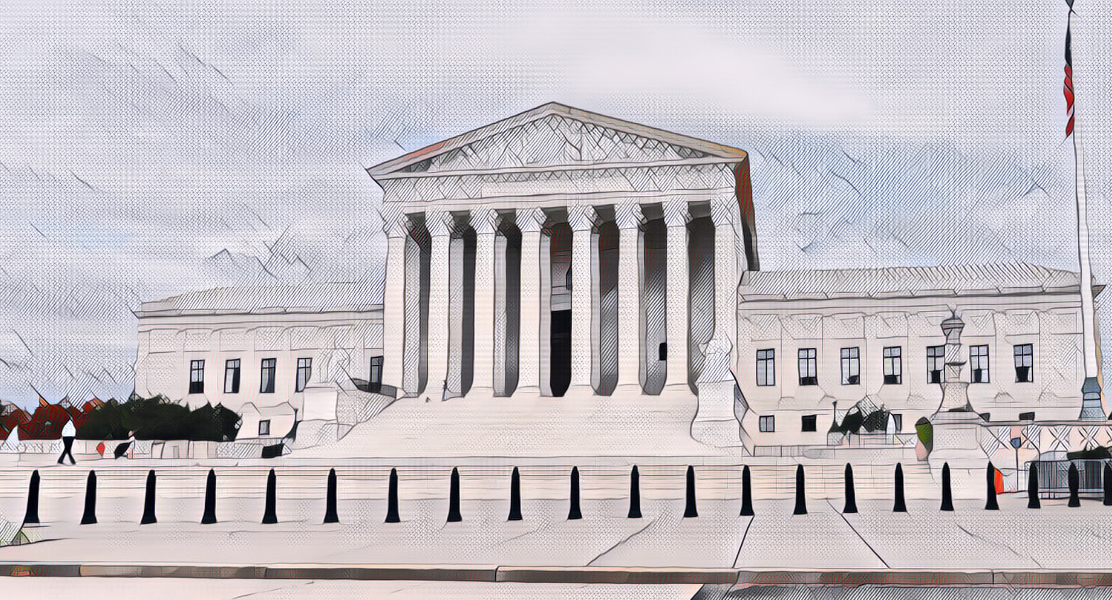U.S. Supreme Court rules 8-1 in favor of death row inmate requesting permission for spiritual advisor to lay hands, pray audibly with him in execution chamber

The U.S. Supreme Court yesterday issued a ruling in Ramirez v. Collier, a case brought by a death row inmate in Texas challenging the Department of Corrections’ refusal to allow his spiritual advisor to be present with him in the execution chamber, lay hands on him, and pray audibly in his final moments. The majority opinion, written by Chief Justice John Roberts, held that an injunction was appropriate because the state was not likely to meet its burden under the Religious Land Use and Institutionalized Persons Act (RLUIPA) to demonstrate that the regulation barring such activities was necessary to achieve its safety interests.
The state argued that the restrictions against clergy being able to touch the condemned inmate in the execution chamber are necessary. Chief Justice Roberts rejected that line of reasoning:
Respondents say that allowing a spiritual advisor to touch an inmate would place the advisor in harm’s way because the inmate might escape his restraints, smuggle in a weapon, or become violent. They also contend that if a spiritual advisor were close enough to touch an inmate, he might tamper with the prisoner’s restraints or yank out an IV line. We agree that prisons have compelling interests in both protecting those attending an execution and preventing them from interfering with it (though if an inmate smuggling a weapon into the execution chamber is a serious prospect, the prison has broader issues than those considered here). Even so, Texas’s categorical ban on religious touch is not the least restrictive means of furthering such interests.
Under Texas’s current protocol, spiritual advisors stand just three feet from the gurney in the execution chamber. A security escort is posted nearby, ready to intervene if anything goes awry. We do not see how letting the spiritual advisor stand slightly closer, reach out his arm, and touch a part of the prisoner’s body well away from the site of any IV line would meaningfully increase risk. And that is all Ramirez requests here.
In a concurring opinion, Justice Sonia Sotomayor emphasized the importance of “ensuring administrative remedies are available” to condemned inmates, including providing advance notice of execution protocols to allow inmates sufficient time to file appropriate grievances.
Justice Brett Kavanaugh also issued a concurring opinion. He discussed the difficulties of applying RLUIPA’s “compelling interest and least restrictive means” standards, which are important thresholds not only in that law, but in multiple areas of the law that protect legal rights against government interference. He argued for courts to cite “history and state practice to structure the[ir] inquiry” rather than relying on the court’s own policy determination regarding acceptable risk of harm to the state’s interest.
Justice Clarence Thomas issued the lone dissenting opinion. He argued that Ramirez abused the legal process to manufacture delay.
BJC joined the Christian Legal Society, the National Association of Evangelicals, the Ethics and Religious Liberty Commission of the Southern Baptist Convention, the General Conference of Seventh-day Adventists, and other groups in a brief arguing that Texas failed to demonstrate the necessity of its blanket restrictions.
BJC Executive Director Amanda Tyler tweeted she was “pleased that a strong majority (8-1) held today that Mr. Ramirez is likely to succeed on his RLUIPA claim to exercise his religion in his last moments of life.”
As BJC General Counsel Holly Hollman explained, this case has implications for all incarcerated persons of all faiths, not just Mr. Ramirez in this case. Protecting his rights is about ensuring that RLUIPA remains a robust religious liberty tool.
For more on this case and the importance of RLUIPA, see Hollman’s helpful essay just published in Liberty magazine, “Religious Freedom in the Execution Chamber.”




